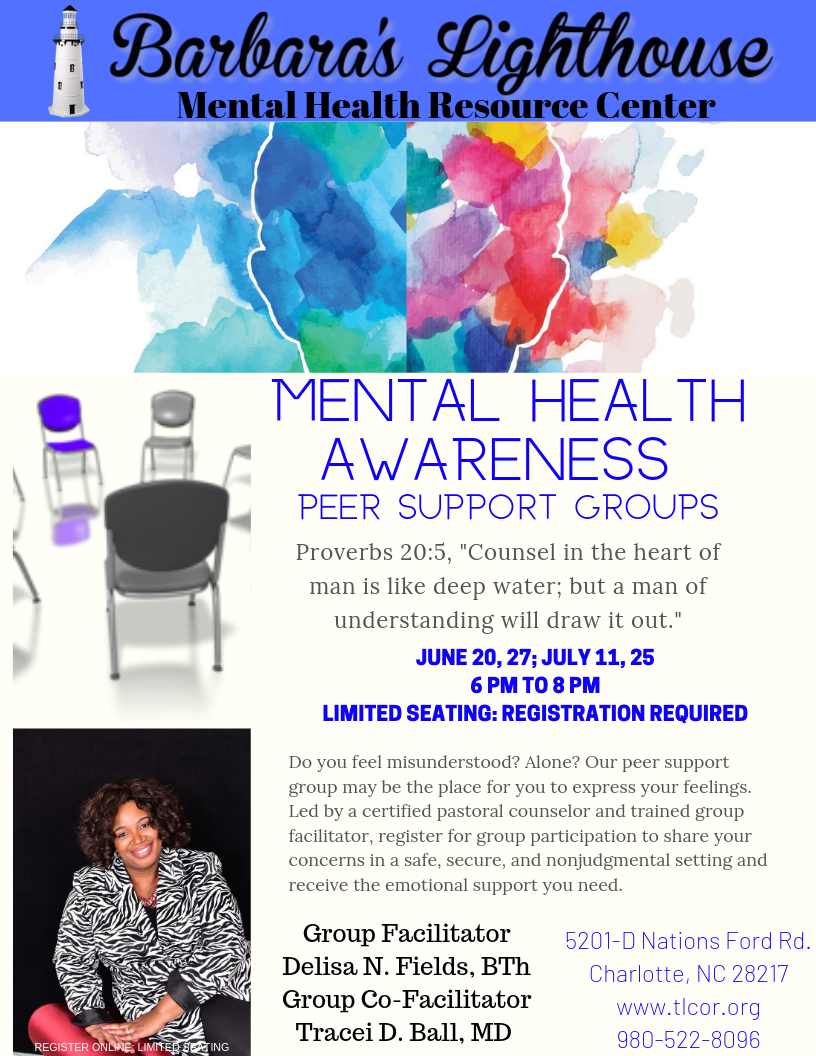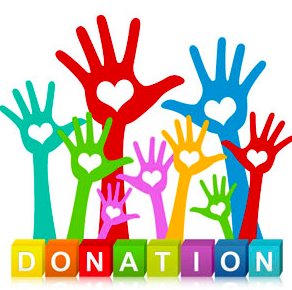WELCOME To BARBARA'S LIGHTHOUSE: THE MENTAL HEALTH RESOURCE CENTER OUTREACH OF THE LOVE CHURCH CHARLOTTE
Nothing convinces me that “mental health matters” more than the wealth of scientific evidence on the unity of mind and body. Examples include the strong relationships between stress and immune system function, depression and heart disease, smoking and suicide risk, exercise and depression – the list goes on and on. It behooves all of us to remember that mind and body are one – when we treat one, we treat the other. Tom Ellis, PsyD, ABPP, director, Psychology
What are peer support groups?
Peer support occurs when people provide knowledge, experience, emotional, social or practical help to each other. It commonly refers to an initiative consisting of trained supporters, and can take a number of forms such as peer mentoring, reflective listening, or counseling.
- Peer Support in mental health is built on shared personal experience and empathy.
- It focuses on an individual's strengths not weaknesses, and works towards the individual's well being and recovery.
- Research has shown that peer-run self-help groups yield improvement in psychiatric symptoms resulting in decreased hospitalization, larger social support networks and enhanced self-esteem and social functioning.
- The benefits of Peer Support are wide ranging for those receiving the support, peer-support workers themselves, and for the mental health system as a whole.
- One of the key benefits of Peer Support is the greater perceived empathy and respect that peer supporters are seen to have for the individuals they support.
- Peer Support also has benefits for peer support workers themselves, increasing levels of self-esteem, confidence and positive feelings that they are doing good. Peer-support workers often experience an increase in their own ability to cope mental health problems. (taken from mentalhealth.org.uk)
mental health matters
Mental health includes our emotional, psychological, and social well-being. It affects how we think, feel, and act. It also helps determine how we handle stress, relate to others, and make choices. Mental health is important at every stage of life, from childhood and adolescence through adulthood. (mentalhealth.gov)
Mental health is not the same thing as the absence of a mental illness. Mental health includes:
Mental health is not the same thing as the absence of a mental illness. Mental health includes:
- How you feel about yourself, the world and your life
- Your ability to solve problems and overcome challenges
- Your ability to build relationships with others and contribute to your communities
- Your ability to achieve your goals



